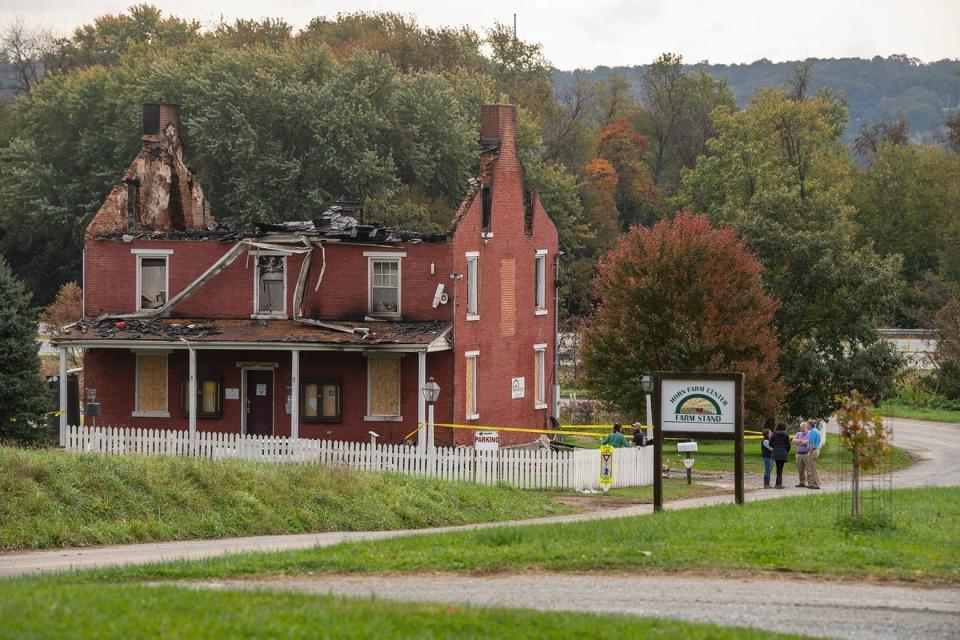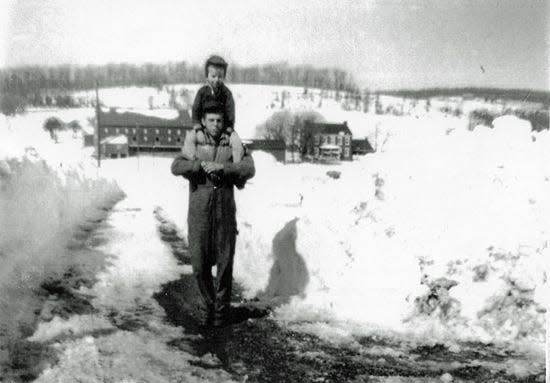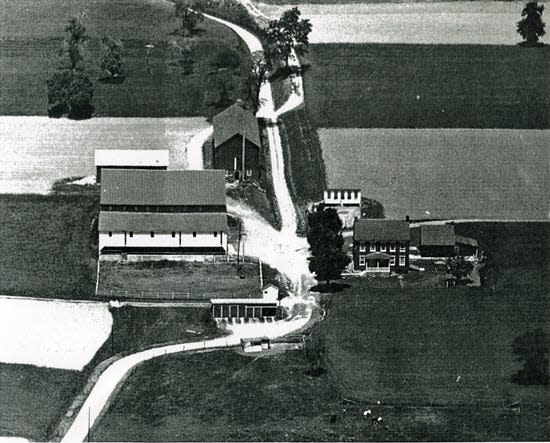Horn Farm rebuilding will honor farmhouse’s history, serve center’s mission
(Editor’s note: To see an expanded version of this story featuring the long history of the Horn Farm, please visit WitnessingYork.com, a digital site operated by James McClure and Jamie Kinsley.)
There was once a York feed manufacturer and retailer who loved the land he owned in the country.
He made products that aided the agricultural community but did not himself farm.
But he enjoyed his Hellam Township property with its barns, fields of grain and livestock. And he loved showing it off, as a history published in 2000 goes.

He died in 1964, and 17 years later, his wife and daughters gave the farm to York County.
A sign on the old farm gives his name:
“This land presented to the county of York by the family of David Edwin Horn in his memory, June 4, 1981.”
So far, so good - in fact, very good.
Then the farm experienced a mixed bag of fortunes.
First, Harley-Davidson eyed the Horn Farm for expansion, before building on the company’s Springettsbury Township campus. Some leaders liked the Harley-on-Horn-in-Hellam idea, giving credence to my long-held belief that some developers won’t rest until the last piece of York County farmland is built over. Putting it another way, if you can build on a farm as beautiful and fertile as the Horn Farm, you can find a way to build anywhere.
And the Harley incident proves the need for a place like the Horn Farm Center. At least, that’s the way agricultural preservationists saw it. They formed a nonprofit board organized in 2004 to raise money to develop the working farm into an educational center, planning to do for agriculture what the Byrnes Health Education Center in York does in its programming.
All those plans have taken root.

Finding its way
But the wonderful barn on the farm burned in 2005, shortly after the center started operations. How do you have a farm to educate and celebrate York County’s agricultural pedigree without an original or at least well-used barn?
Well, the Horn Farm Center found its way.
Then 16 years later, a late-October lightning strike damaged the second and third floors of the farmhouse, the Horn Farm Center’s headquarters.
The center’s leaders aren’t giving up, knowing that expenses likely will exceed insurance on the farmhouse.
“We plan to rebuild as quickly and as sustainably as possible,” the Horn Farm’s website states. “But that rebuild will take time.”
The Horn Farm website lists a host of needs: direct monetary contribution, in-kind services and gift cards for first responders who saved the farmhouse from total destruction.
And interestingly, there’s a need for seeds, that most basic resource in a farm economy. The center’s entire seed inventory, housed on the farmhouse’s second floor, was consumed in the fire.
“Let the ashes of this tragedy,” the website states, “be fertile soil for our future growth and resilient community.”

Plans to rebuild
To catch up on rebuilding plans, Executive Director Alexis Campbell answered three questions about the Horn Farm Center, present and future:
Q. Could you update us about the Horn Farm's plans to rebuild the fire-damaged farmhouse?
A. We spent the last few months since the fire working to assess the damage with our insurance company, securing the current structure and stabilizing our operations. We are now starting the planning process for rebuilding the farmhouse. We plan to work with an architect to understand how we can rebuild the farmhouse in a way that honors its history and better serves the mission of the organization.
Q. What other plans does the Horn Farm have for 2022? Has the fire changed any plans that were in place?
A. Luckily, besides our office work and administration, most of our work is centered outdoors on the 186 acres of the farm. We have a full schedule of classes, programs and workshops planned, many of which are now open to the public for registration. Most notably, we are hosting our second Land Steward Training program and a new Ecological Gardener Training program this year. We are also starting a new tree planting project, installing a 4-acre multifunctional riparian buffer project to complement the 6 acres we planted in 2021, on the other side of the stream. This year, we are pleased to continue to offer the Horn Farm CSA in partnership with the Kilgore Family Farm and other local farms including York Fresh Food Farms and Green Bean Farm.
Q. What other things would you like the public to know about the Horn Farm and its mission?
A. In all of our work at the Horn Farm Center, we aim to inspire and innovate practices and behaviors that address some of our planet’s most pressing needs: restoring broken ecosystems, rebuilding lost wildlife habitat and reversing climate change.
Farmers and gardeners are more important than ever. The Horn Farm Center partners with food producers, land care practitioners and nature to transform the ways we feed ourselves. Through a balance of research, experimentation and real-world application, we are pioneering and implementing regenerative practices to restore ecosystems, cultivate healthy soil, produce abundant yields and protect our waterways. By teaching our community – from children to aspiring farmers – the Horn Farm Center is redefining agriculture and growing a community of skilled land stewards.
Jim McClure is the retired editor of the York Daily Record and has authored or co-authored eight books on York County history. Reach him at jimmcclure21@outlook.com.
This article originally appeared on York Daily Record: Horn Farm rebuilding will honor its history, serve center’s mission

